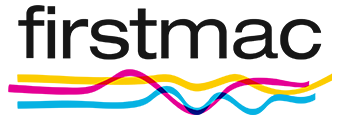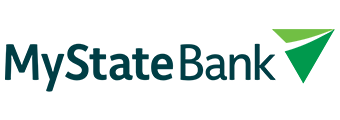

Why you can trust InfoChoice
InfoChoice is one of Australia's leading financial comparison websites.
 One of Australia's oldest and most trusted
One of Australia's oldest and most trusted
comparison sites - founded in 1993 A comprehensive source for
A comprehensive source for
data and calculators Trusted, fact-based news and guides
Trusted, fact-based news and guides
by experienced journalists
Latest News
Australia’s headline inflation heats up in March quarter
Headline inflation in Australia rose faster than expected in the March quarter, dimming hopes the RBA will deliver ...
To what extent did pandemic-era RBA policies affect the home loan market?
New RBA research found the increase in the average mortgage rate lagged behind the recent cash rate hikes.
NAB rate reduction shakes up home loan market
The country’s third-biggest lender National Australia Bank (NAB) slashing its variable home loan rates by mor...
Australia’s jobless rate lifts to 3.8% in March
New ABS jobs data revealed Australia’s unemployment rate rose to a seasonally adjusted 3.8% in March, suggest...
NAB's lower variable home loan rates reflect pricing strategy revamp
National Australia Bank (NAB) has dropped the advertised rates on its discounted variable home loan to better reflect the actual rates borrowers pay.
CommBank & Bendigo Bank-backed lenders shake up the mortgage space
Considering buying a new property? There’s been good news from CommBank’s competitively-priced digital ...
Stay informed.
Get the latest rate updates, financial news, insights and analysis delivered weekly.
Top Financial Institutions
We compare thousands of products from hundreds of financial institutions.
Latest Financial Guides
Which of the Big Four Australian Banks Should I Bank With?
If you prefer banking with big brand names, you’ve got four choices in Australia.
Increase Your Home Loan with a Top-Up
If you’ve got sizeable home equity, and need some extra cash, you might consider ‘topping up’ your home lo...
Can I switch my Home Loan to an Investment Loan?
A homeowner lives in their house for about seven years, on average, so it stands to reason that many will want to turn it into an investment before long.
...Home Loan Statistics Australia
Compare mortgage statistics such as average interest rates, average home loan sizes, first home buyer numbers and more.
Home Loan Cashback Offers and Deals
While waning in popularity thanks to interest rate rises, there are still a number of lenders offering cashback offers and o...
Classic car loans & how to finance them
Vintage or classic cars often come with hefty sales prices or costly restoration bills. In this case, financing this purchas...
Top Calculators
Calculate what your mortgage repayments will be and how they would fit into your budget by using our Mortgage Calculator
Calculate the maximum loan amount you can borrow based on your income and expenses by using our How much can I borrow calculator
Calculate what your upfront or transfer costs are when buying property by using our Stamp Duty Calculator.
Our Personal Loan Calculator allows you to work out how long it would take to pay off your personal loan and how much interest you would pay in that period.
Our Car Loan Calculator allows you to work out the time it would take to pay off your car loan and what you would end up paying towards interest on your car loan.
Use our Savings Calculator to work out how much you could potentially earn in interest with regular deposits. Simply enter your savings amount, interest and frequency to see your possible earnings.
Try our Term Deposit Calculator to determine how much you could potentially earn. Simply enter your investment term, rates and interest details and see how your money could grow.
Wondering if it’s worthwhile paying more money off your credit card? Our credit card calculator lets you adjust your repayments to forecast the potential time and money saved.
Our Income Tax Calculator allows you to enter your annual income and gives you a breakdown of the tax you pay and how much you take home.

















